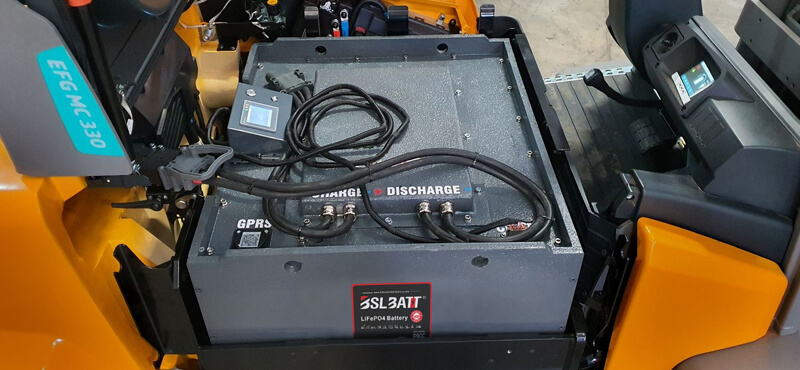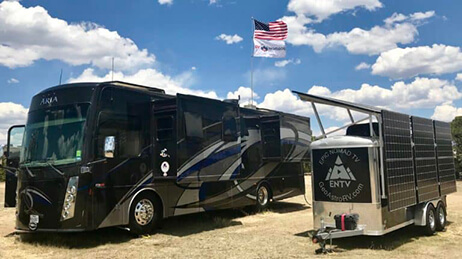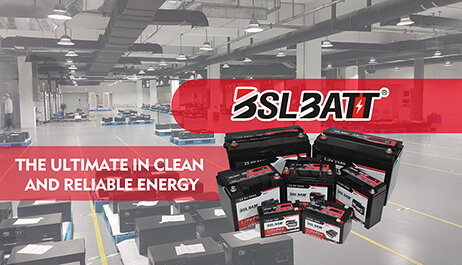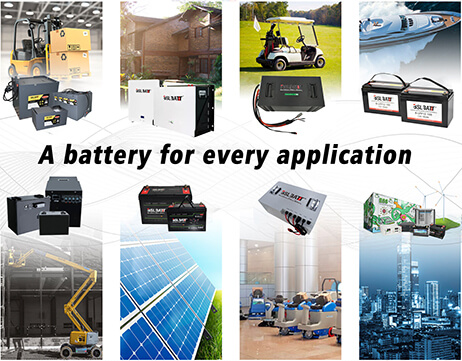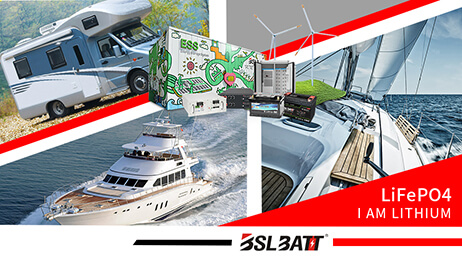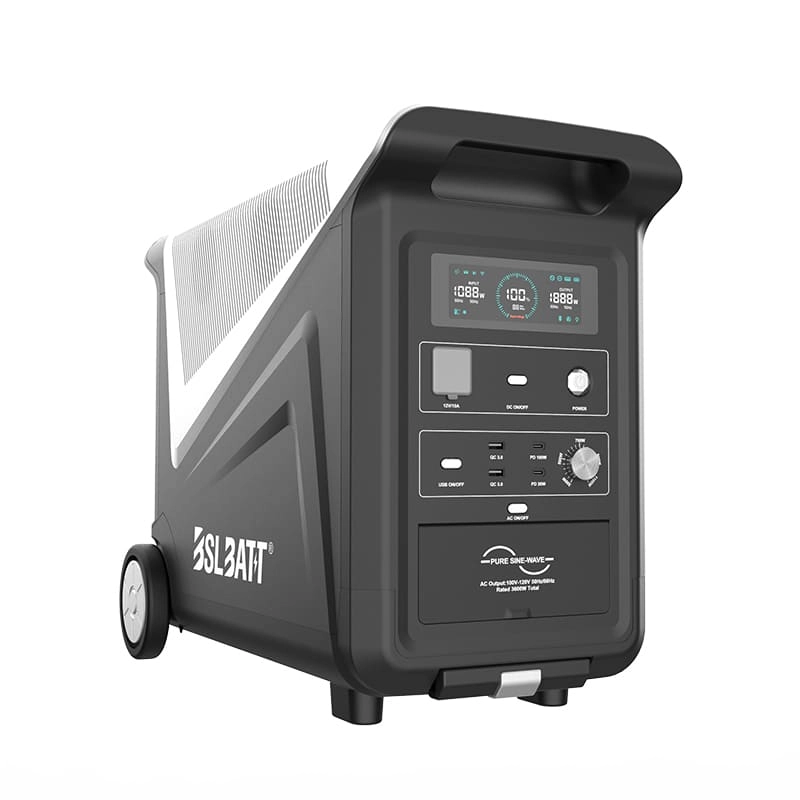Industry Application
Product Type
Lithium batteries for RVs are the wave of the future.
Published by BSLBATTJun 29,2021
Lithium batteries for RVs are the wave of the future.
How To Choose a Lithium Battery for RVs, Campers & Vans On the road or at a campground, your customers’ RV is their home away from home. That’s why having an efficient energy source is important. After all, if you want your customers to have a comfortable experience with your product, they need consistent power to cook dinner and light their RV. Selecting a lithium-ion RV battery is the smartest way to prevent battery failure and other technical difficulties associated with lead acid alternatives. However, you shouldn’t limit your search to small, local battery providers. To find the best RV battery for your customers’ needs, widen your search to include the global market. Working with a global battery provider helps you find what you’re looking for more easily because large providers have a wider inventory to choose from. You’re also likely to receive a higher-value battery. Although battery prices are sometimes difficult to compare due to differences in quality, look for a...
Published by BSLBATTJun 23,2021
Haley Ning, Chief Marketing Officer of BSLBATT Lithium, shares AGV/AMR and lithium-ion batteries
Warehouse Automation The boom in online retail sales has led to a huge uptick in the growth of distribution centers, especially after the Covid-19 pandemic. Many warehouses are working to improve productivity and increase their output to keep up with increasing e-commerce demands. At the same time, some facilities are struggling to fill entry-level warehouse positions, with higher labor costs, higher demand for employees, and tighter regulations. Warehouse managers are looking to automation as a cost-effective way to increase their output and free up human workers for more complex tasks. There are many different types of automated solutions that warehouses might use for different applications, including: ● Automated storage and retrieval solutions (AS/RS) ● Conveyor systems ● Autonomous mobile robots (AMRs) ● Automated guided vehicles (AGVs) The type of battery used to power AGVs is crucial to making the investment pay off. Lithium-ion batteries deliver much greater productivi...
Published by BSLBATTJun 21,2021
Avoid These 6 Pitfalls Of Working With Small Lithium Battery Providers
According to a recent report published by U.S. News & World Report, the burgeoning lithium-ion battery market is set for meteoric growth and success for its investors. Without a doubt, lithium is a powerhouse that has an ever-growing potential to change the battery industry. Embrace the trend and optimize your applications with lithium batteries. The right battery is an essential component of your engineered product. In the marketplace, every product competes for the distinction of being high quality for its price point. Lithium batteries offer the greatest value, boosting your application’s performance and reducing long-term battery replacement costs. However, working with the wrong lithium battery providers may actually hurt your sales and customer satisfaction. You should partner with a well-reputed global battery maker to avoid these five pitfalls of working with a small vendor: 1. Your Lithium Batteries Are Not In Stock Small Lithium Battery Providers usually offer less...
Published by BSLBATTJun 09,2021
How Customizing Lithium Iron Phosphate Batteries Revolutionizes Your Product
The Best of Both Worlds: Our Innovative Technology Built To Your Product Standards Engineering an application you plan to bring to market often comes with unpredictable challenges. That’s why planning ahead for circumstances you can foresee is so important. For example, it’s wise to decide on your Lithium Iron Phosphate Batteries as you begin designing your product. This allows you to incorporate your battery’s size, capacity and weight in the conceptual decisions you make, resulting in a more cohesive design. Of course, you’re not limited to designing around off-the-shelf models. Custom Lithium Iron Phosphate Batteries may be the best option for your application if you need a power source that: ● Has unique dimensions ● Energy requirements ● Operation temperature range ● Communication and monitoring requirements ● Charging method ● Has a specific weight requirement Many engineers choose to equip their product with rechargeable lithium-ion batteries due to lithium’s performance...
Published by BSLBATTJun 07,2021
Why Universities Should Rely On A Global Lithium-Ion Battery Company
LiFePO4 batteries pack a punch. Knocking out traditional lead acid batteries, LiFePO4 is the more efficient technology. Many manufacturers, businesses and individuals are making the switch and converting to custom lithium batteries. When you’re in charge of utilities and energy management at a university, your power needs are significant and varied. For example, you don’t only need electricity, but also a reliable energy source for backup power. During a power outage, students wouldn’t be safe if the emergency lighting in their dorms and classrooms were to fail. If you work for a renewable energy university, you also need a way to store solar power effectively. Lead acid batteries waste energy during charging, defeating your efficiency goals. For every storable energy need, lithium is the ideal battery solution. Rechargeable lithium-ion batteries have many uses in addition to providing backup power and energy for solar applications. In science and engineering departments, lithiu...
Published by BSLBATTJun 04,2021
Are Underpowered Marine Batteries Endangering Your Customers?
When customers are shopping for a marine battery, their priorities are reliability and a long life span. Batteries serve two basic purposes in the marine market: to start up a gas- or diesel-fueled engine, and to power an electric motor. In either situation, customers want a battery that lasts for years, and one that’s reliable every time they leave the dock. Using Marine Batteries With Gas-Powered Engines In boats with gas- or diesel-fueled engines, a marine battery is required to start the engine – much like the starter in an automobile. To be effective, the marine battery must be able to support small electronic loads throughout the day and still have enough energy to start the engine when the customer wants to go back to the dock. A variety of important systems use battery power to operate when the motor or engine are not running. These include bilge pumps, radios, depth finders, power poles, lights and sonar equipment. Loss of power to these navigational systems could put pa...
Published by BSLBATTJun 01,2021
BSLBATT conquers the global energy storage market with innovative battery storage solutions “Made in China”
Battery storage systems are a central pillar of the energy transition With the advance of the energy transition in connection with the global megatrends of renewable energies and electromobility, the global need for energy storage is growing. Lithium-ion battery storage solutions are a central pillar of the energy transition and guarantee security of supply from renewable energy sources. But battery storage systems also leave an ecological footprint. In order for this to be as small as possible and at the same time to benefit from the advantages of energy storage technology for global energy transformation, various factors are important. These include longevity, robustness, low maintenance requirements and low energy consumption of the battery storage. Highly safe, energy-efficient and long-life lithium batteries Professional and reliable industrial energy storage integrated solution provider. BSLBATT ESS has made a name for itself here and positioned itself early on with innova...
Published by BSLBATTMay 28,2021
Learn how lithium-ion marine batteries can help you expand your market share
As you finalize your engineering and manufacturing decisions for your next line of boats, one question is probably growing in your mind: How well will my product sell? You may believe it’s too late to make major changes that improve performance, but think again. Your choice in a marine battery is crucial. Heavy lead acid batteries weigh your boat down, weakening its performance. Customers are going to recognize poor performance issues right away. And ultimately, bad product reviews hurt your sales. If you want to market a high-performance boat, you need an alternative to lead acid. The best marine battery for your application is a lithium-ion battery. Focus On Your Boat’s Performance Measures Customers judge your boat’s performance according to different factors, depending on how they use it. For example, individuals who race boats value speed. People who take their boats out fishing value maneuverability because they must navigate rocks and buoys. Those who go parasailing, wate...
Published by BSLBATTMay 25,2021
Why Engineers Have a Soft Spot for Lead-Acid Alternatives to Lithium-Ion Batteries
From laptops and mobile phones to hybrid cars, lithium-ion batteries have become the standard for many manufactured products. While these batteries have long been well known among engineers, they enjoy a reputation among consumers as being new, cutting-edge technology. Incorporating lithium-ion batteries into your products gives you an opportunity to set your company apart while delivering superior performance and value. In 1980, John Goodenough invented the foundation of the lithium-ion battery. The cobalt-oxide cathode, a lithium battery component, is used in almost every portable electronic device across the world. Many people have tried to improve the cobalt-oxide cathode, but no one has succeeded. Since 1980, the performance and capacity of lithium technology has increased steadily. However, it wasn’t until three to four years ago that a stream of engineers in the U.S. market began equipping their electric products with lithium-ion batteries. Lead-acid batteries have provide...
Published by BSLBATTMay 27,2021
6 Ways Lithium Batteries Power Up Solar
Choose LifePO4 Technology For Your Off-Grid Solar Applications Investing in solar is smart; pairing solar with a lithium battery storage unit is even smarter. While Lithium Batteries Solar tend to be a higher initial investment than lead acid batteries, their superior performance and longevity makes them an ideal choice for off-grid and grid-tie applications. Lithium iron phosphate is the clear choice for energy storage in off-grid applications for several reasons. No matter the size of your system, lithium is the most cost-effective and efficient battery. LifePO4 has many benefits, including the lowest lifetime cost and unparalleled performance. When selecting a battery to complement your solar system, understanding the advantages that Lithium Batteries Solar have over lead acid batteries is essential. Below are some key advantages: 1) Valuable LifePO4 Features LifePO4 is able to cycle to 80 percent depth of discharge over 5000 times, which equates to over 13 years of performa...
Published by BSLBATTMay 17,2021
5 Reasons Using A Lead Acid Battery Hurts Customer Satisfaction
Vehicles and applications that require battery power are expected to run longer, stronger and faster in today’s market. Consumers frequently put too much stress on applications that use lead acid batteries, which often leads to premature battery failure. Anytime you make a purchase, it’s best to understand the ins and outs of your new product. But, let’s be honest – sitting and reading through a manual or doing research isn’t always the top item on your to-do list. So, we narrowed down what you need to know here. Engineers are able to prevent their products’ batteries from failing by installing a healthier battery as the “heart” of an application. Lithium-ion batteries are the smart choice. However, many products still reach the market with lead acid batteries as their power source. The following drawbacks explain why lead acid batteries hurt customer satisfaction: 1. Slow Charge Rates Limit Operational Time Undercharging occurs when the battery is not allowed to return to a ful...
Published by BSLBATTMay 08,2021
Moving To Lithium Batteries: How To Make The Switch
Making The Transition To Lithium-Ion In 5 Simple Steps The substantial benefits that Lithium Ion technology offer over lead-acid technology means that using Lithium Ion batteries is becoming an ever more popular choice. When considering replacing an existing lead-acid battery bank by a Lithium Ion battery bank one needs to take a couple of things into consideration. Although the term ‘drop-in replacement’ is occasionally used in this case, it is actually never as simple as that. However, making that transition happen for your facility or field application isn’t always seamless – unless you know the right steps. Now, those steps are simpler and clearer than ever. Here’s your step-by-step guide to making the switch from lead acid batteries to full lithium power: Why Make The Switch? There are many benefits to lithium batteries, including: CHARGING THE BATTERY Lead Acid battery: The charging efficiency of this type of battery is low – only 75%! A lead-acid battery needs more energ...








